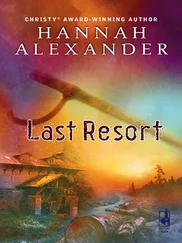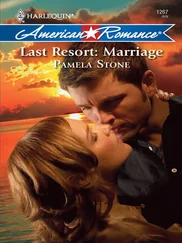More than anything else, it was this book and this passage that had made Wilkie Walker famous. The Last Salt Marsh Mouse, unlike its namesake, had thrived and reproduced profusely over the last quarter century; it had given birth to paperback editions, translations into sixteen foreign languages, innumerable excerpts in anthologies and condensations, and simplifications for the juvenile market. There had been documentary film, television, and cartoon versions, sometimes with a tacked-on happy ending. “Salty” posters and T-shirts were available in science museums everywhere, and toy salt marsh mice, some moderately authentic as to size, color, and shape, and others distorted in a Disney manner, were widely sold. “Salty” had become a cuddly shorthand symbol for the threatened extinction of North American mammalian species. He had made Wilkie’s fortune, and his name a household word.
But now, whenever Wilkie recalled this endangered rodent, he felt a shudder of self-hatred and despair. In spite of the hundreds of thousands of copies they had sold, his books had in some ways done more harm than good. Many salt marsh mice had been illegally kidnapped for sale as pets; others had been acquired by zoos that wanted to display this now-famous mammal. As a result, just as in Wilkie’s worse-case scenario, Salty was now nearing extinction in the wild, and the world was going to hell in a nonbiodegradable plastic handbasket.
Last week, against his better judgment, he had given yet another interview to a student from the local high school newspaper.
“How many species do you figure you have helped to preserve, Professor Walker?” the child, a pimply girl, had inquired.
Wearily, Wilkie gave his standard reply, displaying his famous modesty, declaring that he had been only one of several working in the field. But other words screamed for utterance. I preserved the species Wilkie Walker, that’s what I preserved, he had wanted to tell her. And not only this one specimen of the species, but hundreds, thousands of imitation Wilkie Walkers: noisy, posturing, sentimental amateur naturalists. He visualized them as half-human Yahoos: packs of ugly, hairy, ungainly two-legged goats in cheap outdoor jackets and boots, tramping heavy-hooved over the fields and woodlands of North America, crushing flora underfoot and frightening fauna, baaing, nibbling, preening.
It was clear to Wilkie now that if he had stayed with serious science he might have made some significant discovery. Instead, horrified by what was happening to the world around him, he had become a popularizer. A propagandist. He had brought upon himself the fate of all successful popularizers: he had made his point so well that it had become banal. Once his name had been used to describe and recommend the works of writers like Ed Hoagland and Annie Dillard; now their names were used to recommend his work. His books, at first popular with adults, were now read mainly by children and teenagers, and it was now mostly high school and college students who asked to interview him. If you’re over seventy, he had realized belatedly, nobody important in the media wants to hear from you anymore. Their attitude is, Wilkie Walker? Is he still alive?
Once Wilkie had dined at the White House and been the featured speaker at important conferences, earning very large fees (often donated to good causes afterward). Now his typical honorarium had shrunk. He had been reminded of this a while ago by the brash young man with sideburns who had taken over the business of his former lecture agent, now retired. “Let’s face it,” this disagreeable youth had said, leaning confidently toward Wilkie across a table in a pretentious Italian restaurant and breathing garlic on him. “You’re an established name, sure, but you’re no longer the flavor of the month.”
Wilkie’s left hip, which he had injured five years ago climbing a cliff in New Mexico to observe jackrabbits, ached tonight: no position on the sofa was comfortable. He could picture how the bones must look, lumped with calcium deposits that grated against the adjoining muscles, tendons, and nerves. That hip would never totally heal now; probably it would get worse and worse, until he was permanently stiffened and crippled, permanently in pain.
Except he probably wasn’t going to live that long. For six months he had been aware of an intermittent ache in his lower gut, and in October, in a graffiti-scrawled toilet stall at the college library, he had seen blood. He knew what that meant: cancer of the colon. He couldn’t feel it yet, but somewhere in his bowels his life was diseased and bleeding away. When that fool Dr. Felch asked him if there were ever blood in his stool, Wilkie hadn’t volunteered the information. He knew the odds; he had looked them up. He was determined never to be the weak, exhausted victim of a colostomy, weakened further by chemotherapy and radiation, dragging through what was left of his life with a plastic bag of his own shit strapped to his body. No. He would say nothing until treatment became impossible.
The trouble was, he couldn’t put the fear and the pain and the fear of coming greater pain out of his mind. And this failure of courage and detachment pained and terrified him further. He was sick with self-disgust to think that when this planet and the animals that lived on it were in such desperate straits, he should be obsessed with his own declining health—and, worse and more shameful, his declining reputation. He was an animal too, and animals suffered and died, he told himself; that was what had always happened and always would happen.
His hip ached, ached. But he was not going to admit this to anyone, not even Jenny, not yet. For many years articles and books had portrayed Wilkie Walker as stoic, heroic, fit, and invincible; stories had been told of how in search of rare creatures he had survived Alaskan blizzards, tropical heat and storms, treks through remote jungles, frostbite, days without food, a dislocated shoulder, a broken wrist. Largely, these stories were true.
But Wilkie was no longer regarded as heroic by everyone. Many animal-rights activists now considered him weak and gullible, and his writings outdated and irrelevant. Ecological vandals who had tried unsuccessfully to enlist him in their cause now despised and bad-mouthed him because he wouldn’t support or participate in the driving of murderous spikes into redwood trees or the bombing of animal research laboratories. As several of them had troubled to inform him, in print or in person, in their opinion he was not only a cowardly, cranky has-been, but a traitor to the environment.
All this was in Wilkie’s mind, always. But he was resolved not to complain, especially not to Jenny. For as long as he could, he must be strong for her, because she was weak.
A troubled, complex expression appeared on Wilkie’s face. For a quarter of a century he had loved Jenny more surely, more steadily than any other human being. But now he also resented her, because if she did not exist he would be free to leave the world by the nearest exit—in his current fantasy, the exhaust system of their Volvo station wagon. Because of Jenny all such exits were barred; he knew that psychologically she would not survive his self-inflicted death.
For Jenny he must live as long as he could and die as peacefully. He must save and shelter her now, as he had saved and sheltered her ever since, over a quarter century ago, they had met at UCLA. His first reaction, even stronger than his awe at her delicate pale beauty, was astonishment that such a creature—a creature of the woodlands and wild places, surely—should be living in Los Angeles. When he heard that Jenny had been born and raised in New England, he understood better. Later, when he learned that she had been unwillingly transported to Southern California by self-centered and ambitious parents, and then abandoned there, a spirit of ecological knight-errantry had suffused his romantic admiration. He swore to himself that, whatever it cost, he would rescue this beautiful, unique primate and restore her to her natural environment.
Читать дальше












